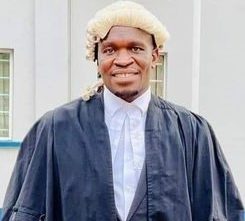There’s been a great deal of discussion surrounding the prestigious title of Senior Counsel, particularly after the recent postponement of the ceremony meant to confer this honor on 15 lawyers, including Attorney General Thabo Chakaka Nyirenda. The situation has unveiled apparent confusion within the Malawi Law Society (MLS) itself. According to Solicitor General and Secretary for the Ministry of Justice, Allison M’bang’ombe, it is the Honours Committee of the MLS that recommends candidates for this esteemed title. However, the President of the MLS, in his correspondence, seemed to suggest that the appointing authorities had overstepped their legal bounds, although it appears they were misled by the very same society.
This begs the question: why is there such intense interest in the Senior Counsel title? Legal Practitioner Khumbo Soko provides an insightful breakdown.
“I notice that there is a lot of interest in the issue of Senior Counsel. Here are a few fast facts.
- It is a mark of distinction in the career of a Legal Practitioner. It is usually [and should ideally] be given to elite lawyers who have consistently set themselves apart in their practice and whose conduct is exemplary. The Legal Practitioner should demonstrate that they have made a significant contribution to the development of the law.
- The honour is governed by the law and is granted by the President on the recommendation of the Honours Committee which is chaired by the Chief Justice.
- Senior Counsel are entitled to use the post-nominal letters ‘SC’ at the end of their name.
- Senior Counsel are given priority in courts according to the date of their appointment. What this means is that if they show up at court and find 20 lawyers waiting to argue their matter before a Judge, they ‘jump the queue’ and will be attended to first.
- For open court matters, in superior courts, their gowns are made of silk as opposed to the cotton that the rest of the advocates wear. That’s why SC are also called ‘Silks’.
- They are entitled to charge more for their services. There is a practical benefit, therefore, to being appointed SC.
- Ordinarily, their services are only supposed to be deployed in serious, novel and complex cases. If they are used in ordinary and routine cases, their costs can be objected to.
- As a collective, they are called the ‘inner bar’. In some of other jurisdictions, such as England and Wales, they are called ‘Queen’s or King’s Counsel’ or State Counsel [zambia] or Senior Advocate of Nigeria [In Nigeria.] In Nigeria, in some superior courts, such as the Federal Appeals Court, they have especially designated seats at the bar where their SAN sit. You can’t sit on these chairs if you are not a SAN.”
I hope that all you have benefited from this eye opener explanation.













